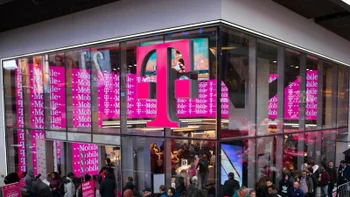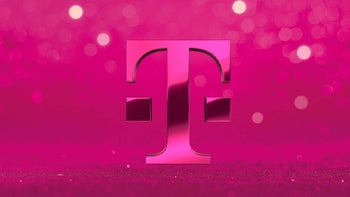If Dish gets extension on 800MHz purchase, T-Mobile will lose $215 million

The last time we took a look at the T-Mobile-Dish dispute, we told you that T-Mobile was asking the U.S. District Court for the District of Columbia not to award Dish a 10-month extension on its option to buy low-band 800MHz spectrum from T-Mobile for $3.59 billion. Originally set to expire in August, Dish asked the court to extend the option for 10 months due to the fragile state of its balance sheet.
Originally, T-Mobile promised to get rid of the spectrum to help it get approval from the FCC for its purchase of Sprint. And as we told you at the end of last month, there are some new players interested in the airwaves (more on that later). While Dish might not have the money now, it is hoping that by June 2024, the merger with EchoStar and other deals with Amazon and other firms will leave Dish in a better place financially.
T-Mobile says that Dish should not get a pass since it should have known things like higher interest rates were possible
T-Mobile, in its filing with the court, said that Dish should not be allowed to get an extension due to financial hardships like higher interest rates since that is always a known risk of financing. Dish responded to the court by saying that certain things, like the Ukraine war and the pandemic, were not foreseeable.

T-Mobile doesn't want the court to give Dish a 10-month extension to exercise its option to buy 800MHz spectrum
"T-Mobile’s cavalier attitude toward unprecedented interest rate hikes notwithstanding, the global financial turbulence resulting from the Covid-19 pandemic and a war in Europe was certainly not foreseeable by Dish when the Division commenced this action in mid-2019," Dish said. "But those events have seriously impaired Dish's ability to close the purchase of the 800MHz spectrum licenses in the near term"
Dish also says that T-Mobile wants the court to review this as a normal commercial dispute when instead the court should keep in mind that the goal of the final judgment allowing T-Mobile to buy Sprint was to keep the industry competitive by having four major wireless providers in the States. Additionally, Dish points out that T-Mobile was allowed to complete a "highly profitable acquisition of Sprint" and that if it has to pay more to divest itself of the spectrum as required, it doesn't matter since the goal was for the industry to remain competitive.
T-Mobile complained to the court that it would be responsible for additional expenses if it has to hold on to the 800MHz spectrum for an additional 10 months. The carrier says that the extra expense will amount to $215.7 million. If Dish doesn't buy the spectrum and T-Mobile has to put it up for auction, it will be valued at a lower amount since the licenses begin to expire in March 2028.
Dish Chairman Charlie Ergen recently said that the 800MHz low-band airwaves were not a must-have, but Dish says that T-Mobile took the comments out of context and "cherry-picked" them. Dish says that the 800MHz spectrum is still necessary for it to compete in the wireless industry.
Dish told the court that it still needs the 800MHz spectrum to be competitive
Writing to the court, Dish stated, "The 800MHz frequencies are instrumental to reducing Dish's marginal costs because they will help avoid network congestion – a key driver of costs. If the 800 MHz licenses were to go to another buyer, Dish would not be able to simply buy other low-band and uplink spectrum at its convenience." New Street Research (NSR) analyst Blair Levin told clients that while it is still a tough decision, he believes that the DOJ will side with Dish and file with the court on its behalf.
In the previous article, we mentioned that a company called Burns & McDonnell (B&M) had asked the court to participate in the legal proceedings. One analyst said that B&M is probably representing the interests of a group of electric utility firms that use spectrum. But Dish had a response to this rumor as well, noting that B&M's group would not replace the loss of Sprint as the nation's fourth-largest wireless firm.
"Even assuming that Burns & McDonnell's unidentified ‘Group’ of financing, utility and industry partners could consummate a purchase of the 800 MHz spectrum licenses, only by some miraculous metamorphosis could these companies fill the competitive void left by Sprint." Dish wrote. "Any benefit from Burns & McDonnell’s acquisition of the spectrum would be outside the national facilities-based mobile wireless market and therefore would not offset the loss to competition cause when T-Mobile swallowed its closest competitor."










Things that are NOT allowed: